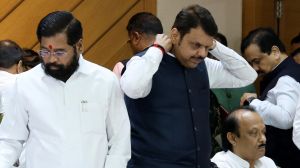RTE from today,Sibal outlines plan for states
The much-awaited Right to Education Act 2009 will come into force from Wednesday promising compulsory schooling for all children aged between six and 14 years and mandating that all private unaided schools....
The much-awaited Right to Education Act 2009 will come into force from Wednesday promising compulsory schooling for all children aged between six and 14 years and mandating that all private unaided schools reserve a quarter of their seats for disadvantaged children.
Human Resource Development Minister Kapil Sibal on Wednesday borrowed former prime minister Jawaharlal Nehrus words to describe the Act,to be implemented over a 12-year period,calling it a historic tryst with destiny. This tryst,however,is fraught with challenges and will require the concerted efforts of the Centre and states to effect the reforms delineated in the ambitious legislation. A letter written to all state Chief Ministers by Sibal elaborates the roles they have to play from April 1. Excerpts:
n School and social mapping: The RTE Act mandates free and compulsory education for all,and all states have to conduct a school as well as a social mapping exercise to ensure availability of neighbourhood schools. Geospatial mapping has been recommended by the ministry to mark out catchment areas of neighbourhood schools.
n Catching those out of school: Children who are out of school would need to be enrolled in an age-appropriate class and provided special training to integrate them,emotionally and academically,with the other children. This entails special training in accordance with Section 4 of the Act.
n Redeployment of teachers: To maintain prescribed pupil-teacher ratio in each school,redeployment of teachers would have to effected so that any imbalances are addressed well before the next academic session. The ministry,however,has sought to remind that sensitivity should be shown,considering the domestic responsibilities and special circumstances of teachers.
n Filling vacancies: States would have to lift orders putting a freeze on teacher recruitment to fill vacant posts expeditiously and ensure that a school-wise pupil-teacher ratio is maintained. An estimated one million teachers would be needed over the next few years for the implementation of RTE.
n Teacher training: The Act mandates that all untrained teachers should acquire professional training with a maximum of five years. The states have been asked to prepare a plan to facilitate this.
n Grievance redressal: Each state has also been asked to immediately constitute a State Commission for Protection of Child Rights (SCPCR) as the RTE Act mandates these as redressal forums. In the interregnum,the HRD Ministry has ordered that an authority should be constituted to exercise powers of the SCPCR for monitoring the rights of children under the Act.
n The funding: As per an estimate,the government will have to spend Rs 1.71 lakh crore in the next five years for implementing the Act. The ministry has said that resources earmarked for all centrally mandated elementary education schemes,ranging from Sarva Shiksha Abhiyan to Mid-Day Meal,teachers education and also total sanitation campaign and drinking water mission,will be now factored in for implementation of the RTE Act. In addition,the grants in aid awarded by the 13th Finance Commission for elementary education will also be employed for the RTE. At the Central level,there is an outlay of Rs 15,000 crore for 2010-11 to represent the Centres share in the 55:45 ratio for SSA. The states have been asked to pitch in with their share.
- 01
- 02
- 03
- 04
- 05































